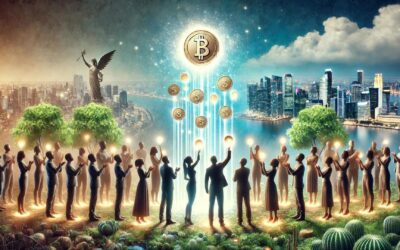The Gist
Imagine waking up every day without the need to rush to a job. No more alarm clocks set to beat traffic, no more long hours spent in an office or on a construction site, and no more bills piling up because you need a paycheck to survive. For many of us, the idea of a world where we don’t have to work sounds like a utopia. But what would society actually look like if the necessity of work were removed? How would our lives change? What kind of world would we create if we were free from the need to work for a living?
Let’s explore the possibilities of a society without the traditional concept of work and consider the profound changes it could bring to our social structures, values, and even our sense of purpose.
The Role of Work in Society
Work has been a cornerstone of human society for millennia. It provides not only income but also structure, identity, and purpose. Many people derive a sense of accomplishment and self-worth from their jobs. In modern society, much of our daily lives revolves around work—whether it’s meeting deadlines, achieving professional milestones, or simply ensuring we can pay the bills.
But the necessity of work also imposes certain limitations. For most people, work takes up the majority of their time, leaving less space for personal development, creativity, leisure, or relationships. Additionally, many jobs are physically demanding or mentally draining, and people often work out of necessity rather than passion.
Now, what if we were to eliminate the need for work entirely? With advancements in technology, automation, and discussions about universal basic income (UBI), it’s not impossible to imagine a world where work as we know it becomes obsolete. In such a world, where would we find meaning? How would we redefine productivity and success?
A Shift in Values and Social Structure
If work no longer dictated the structure of our lives, society would undergo a profound shift in values. Without the need to work for survival, people might prioritize different aspects of life, such as creativity, community, and personal fulfillment. Rather than being judged by their career achievements, individuals could focus on how they contribute to society in other ways—whether through art, education, or volunteering.
In a world without traditional jobs, we might see a resurgence in activities that are often sidelined due to time constraints, such as gardening, crafting, or learning new skills. These pursuits, which were once integral to human societies, could become central again, offering fulfillment that isn’t tied to economic output.
Additionally, relationships and community life might take on a greater role. Freed from the demands of a 9-to-5 schedule, people could spend more time with family, friends, and neighbors, strengthening social bonds and enhancing their quality of life. The emphasis might shift from individual success to collective well-being, as people would no longer be competing for limited jobs or resources.
The Economic Implications
Of course, a world without work also raises significant questions about economics. How would society distribute resources if income were no longer tied to employment? One possible answer lies in the concept of Universal Basic Income (UBI), a system in which all citizens receive a regular, unconditional payment from the government, regardless of whether they work.
With UBI, people would have the financial freedom to pursue passions and interests that don’t necessarily generate profit. Artists, writers, caregivers, and innovators could contribute to society without the constant pressure to make ends meet. Entrepreneurs might take more risks, leading to an explosion of innovation and creativity.
However, there are potential challenges to this system. Who funds the UBI? How do we ensure that wealth is distributed equitably? And, perhaps most importantly, how do we balance technological advancements with the ethical concerns of automating labor, potentially displacing millions of workers?
Finding Purpose Beyond Work
One of the most thought-provoking aspects of a world without work is the question of purpose. For many, work provides a sense of identity and a reason to get up in the morning. If work were no longer necessary, how would people find meaning in their lives?
This question forces us to reconsider what makes life fulfilling. Without the need to work, individuals might turn to creative outlets, hobbies, or intellectual pursuits. Education could become a lifelong endeavor rather than something confined to our younger years. People might volunteer more, engage in civic activities, or spend time improving their communities.
At the same time, not everyone would find this transition easy. For some, the structure and routine that work provides are essential to their well-being. Without it, there’s a risk that people could feel adrift, struggling to define their purpose outside of a career. This could lead to widespread existential anxiety if society doesn’t provide alternative paths for fulfillment and self-worth.
A Reimagined Society
Ultimately, a world without work could foster a society where people are free to pursue their passions, deepen their relationships, and contribute to the community in ways that aren’t limited by financial concerns. With the proper systems in place, such as UBI or other forms of resource distribution, society might become more equitable, with less focus on competition and more on collaboration.
However, this would also require a cultural shift in how we define success. As a society, we’ve long equated productivity with worth, and work with identity. Letting go of these notions would mean embracing new forms of success—ones based on creativity, empathy, and the collective good rather than individual financial gain.
In this imagined society, we might ask ourselves: What would you do if you didn’t have to work? How would you fill your days if money were no longer a concern? Would we see a more creative, fulfilled, and interconnected world, or would new challenges arise as we search for purpose in a life beyond work?
While we may not have definitive answers to these questions yet, exploring the possibilities forces us to reconsider our current relationship with work and opens the door to rethinking how we might build a more balanced, meaningful future.
Expand Your Vocabulary
- Utopia
Definition: An imagined place or state of things in which everything is perfect.
Contextual Use: The idea of not having to work may sound like a utopia, but it comes with its own challenges.
Everyday Use: “They envisioned a utopia where everyone lived in harmony, free from conflict.” - Universal Basic Income (UBI)
Definition: A government program in which every adult citizen receives a set amount of money regularly, regardless of employment status.
Contextual Use: In a world without work, Universal Basic Income could provide financial security for everyone.
Everyday Use: “Some countries are experimenting with Universal Basic Income to reduce poverty and inequality.” - Automation
Definition: The use of technology to perform tasks that previously required human labor.
Contextual Use: With advancements in automation, many jobs could become obsolete, reducing the need for human work.
Everyday Use: “Automation in factories has increased efficiency but also displaced many workers.” - Equitable
Definition: Fair and impartial; ensuring equal opportunities and outcomes for all.
Contextual Use: If we move toward a society without work, it’s important to ensure wealth is distributed equitably.
Everyday Use: “An equitable system would ensure that everyone has access to the same opportunities, regardless of their background.” - Productivity
Definition: The efficiency with which tasks or work are completed, often measured in output per unit of input.
Contextual Use: Without work, society would need to redefine productivity beyond economic terms.
Everyday Use: “The team’s productivity increased after they started using the new project management tools.” - Collective Well-Being
Definition: The general health, happiness, and quality of life of a group or society as a whole.
Contextual Use: Without work, society might focus more on collective well-being rather than individual success.
Everyday Use: “Policies that focus on collective well-being can improve the quality of life for everyone in the community.” - Economic Output
Definition: The total value of goods and services produced by an economy.
Contextual Use: In a society without work, economic output would likely be driven by automation and creativity rather than traditional labor.
Everyday Use: “Economic output tends to rise during times of technological innovation and industrial growth.” - Existential Anxiety
Definition: A deep feeling of anxiety or uncertainty about the meaning and purpose of life.
Contextual Use: Without work, some people might experience existential anxiety as they search for new sources of purpose.
Everyday Use: “He was overwhelmed by existential anxiety, questioning the purpose of his daily routine.” - Cultural Shift
Definition: A significant change in the values, norms, and behaviors of a society.
Contextual Use: A society without work would require a cultural shift in how we define success and personal value.
Everyday Use: “The rise of social media has caused a cultural shift in how people communicate and interact with each other.” - Redefine
Definition: To change the meaning, nature, or scope of something.
Contextual Use: In a work-free society, we would need to redefine productivity, success, and personal fulfillment.
Everyday Use: “The pandemic forced businesses to redefine how they operate, with many moving to remote work.”
Let’s Talk
- What would you do if you didn’t have to work for a living?
Reflect on how you would spend your time if you were financially secure without the need for a job. Would you focus on hobbies, relationships, or creative pursuits? - Do you think Universal Basic Income could realistically support a society without traditional jobs?
Consider the economic and social challenges of implementing UBI. How would it be funded, and would it be enough to replace the need for work? - If work didn’t define our identities, how would we measure personal success?
Without careers to give us structure, how would we find purpose and define success? Would society place more value on creativity, personal growth, or community involvement? - How might automation and technology change the way we think about work in the future?
Think about the role of robots and AI in performing tasks that humans currently do. How might this change our relationship with work, and what new challenges could arise? - In a society without work, would people be more or less motivated to contribute to their communities?
Consider whether people would feel more connected to their communities if they had more free time or if they would become disengaged without the structure of a job. - Could a society without work lead to more equality, or would it create new forms of inequality?
Reflect on whether a society without jobs would reduce or increase disparities between people, and what systems would be needed to ensure fairness. - Would a shift away from traditional work make society more or less creative?
If people no longer had to focus on survival through work, would they have more freedom to explore creative passions, or could the lack of structure hinder creativity? - How would we maintain productivity in a world where work is no longer necessary?
Consider how productivity might be redefined in a society without traditional jobs. What other forms of contribution would be valued? - Do you think a work-free society would lead to more meaningful relationships?
If people weren’t focused on their careers, would they have more time to invest in personal relationships and community, or could it lead to isolation? - What impact would a work-free society have on mental health?
Would the absence of work-related stress improve mental health overall, or could the loss of structure lead to new mental health challenges?










0 Comments